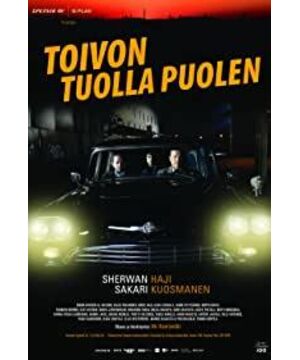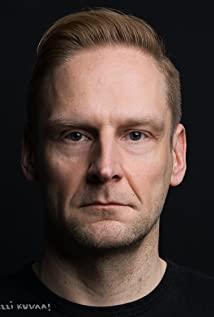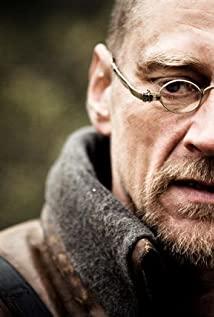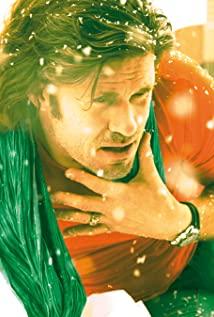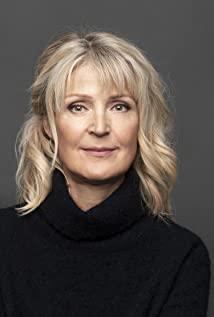He, how come he never returns, can it feel that the beacon smoke covers the sky and the future.
Helpless and frozen eyes, tears look at the sky belt The grief and anger is to accuse the war to the end, and the pain is the child. "
"In the sky, birds can be seen in the sky, and they spread their wings in panic. They travel through the sky just to find freedom.
Heart, hundreds of billions of hearts are broken, today's all troubles, as if the truth has disappeared on the earth.
Helpless and frozen eyes, tears looking at the sky with grief and anger, is to accuse the war to the end, the pain is children. " "
The struggle between rights and possessions, the struggle between ignorance and prejudice, if the war ends here, how can there be peace, I call out to the world. AMANI NAKUPENDA NAKUPENDA WE WE."
Whenever I see anti-war and refugee-themed movies and TV dramas appearing, the famous anti-war song "Amani" by the Band Beyond will always ring in my ears. This paragraph of shocking lyrics, that scene after the war, the corpses are everywhere, like a sharp sword penetrating the heart, people feel empathy and have a lot of thoughts.
The opening introduction is a bit long, sorry. Next, quickly enter the film review stage. The work recommended this time, titled "Toivon tuolla puolen" (Chinese translation "the other side of hope"), is a "refugee theme" film directed by Finnish master director Aki Kaurismäki.
The story tells the story of Khalid, a Syrian refugee, who smuggled to Helsinki, Finland to seek asylum. The main characters in the film include Khalid, a Syrian refugee, Wikström, a Helsinki resident (a representative of the middle class), Mazdak, an Iraqi refugee, and Khalid's lost sister. A brief introduction, I believe you have a preliminary understanding of the general content of the film, so let’s start commenting without much nonsense.
I. Unique director
Aki Kaurismäki, Finland's most famous director, with a strong personal touch. Since the 1990s, he has won several awards at the Berlin International Film Festival, and his subsequent trilogy ("Falling Clouds", "The Man Without the Past", "Lights in the Dusk") have been favored by the Cannes Film Festival jury. This 2017 new work "Toivon tuolla puolen" once again successfully won the Best Director Award at the 67th Berlin International Film Festival, which is well deserved.
Audiences who know Kaurismäki must be familiar with his style - the picture is extremely simple, the focus on the middle and bottom working people, "beer, music, live bands", a fiery love wrapped in a cold exterior, all these characteristics are perfectly presented in the new work. Among them, let people experience the "Aki-style film aesthetics" once again.
II. A clear narrative structure
The opening of the film is a two-line cross-progress. One line is "Khalid, a Syrian refugee in the context of war", and the other line is "Wikström, a former shirt salesman who changed his career to the catering industry in the context of economic depression." Of course, the director arranged a chance encounter between the two at the very beginning. Most of the time after that, they were in different places and had nothing to do with each other, until "Khalid was told to repatriate, he fled and hid next to the garbage can of the restaurant Wikström bought", and then the two lines merged. Why two lines? It's obviously telling the story of "refugees", so why intersperse other seemingly irrelevant content? Talk about personal opinion, not necessarily accurate.
1. Khalid has something in common with Wikström. Refugee Khalid - homeless, can only choose to smuggle to seek a livelihood; Wikström - has no home (leaving his alcohol-obsessed wife), relying on selling shirts and making a good bet, making it difficult for himself to change careers ( Bought a poorly run restaurant) and started a new life. What are the similarities between the two? First, the farther and farther home. Second, the unknown future. Finally, hope for a new life.
2. View refugees from the eyes of the people. Wikström is just an ordinary resident of Finland. He does not represent the government, authority, or interest groups. He just represents himself and looks at the "refugee phenomenon" from the eyes of an ordinary person. The director discusses the "refugee issue" from this perspective (equality, not looking down), which fits the audience's psychology very well and is especially heartwarming.
III. The meaning of the title The title of the
film is "The Other Side of Hope", does it mean the other side of hope? It means helplessness, confusion, despair? Or is it another way of expressing "hope"? Or something else? After thinking about it for a long time, I really can't answer this question perfectly. Maybe I can only wait for the director to tell the audience the true meaning of it.
Although I don't understand it, I still hope to share my humble opinion. (For reference only)
"The other side of hope" is still "hope" in the final analysis! So what is "hope"? It's light in the dark! It's a beacon in the dark! It is the driving force for everyone to move forward! It is not difficult to see that many bridges in the film strongly promote the power of "hope"!
"The other side of hope" is "living with hope"! What is the hope of refugee Khalid? is his sister. He confessed to the immigration officer that he had no consideration for his future and only cared about his sister. Obviously, his hope was not for himself, but to help his sister continue to live a happy and happy life, because only she is the driving force for Khalid's life. hope.
IV. Refugees who have nowhere to stay
"refugees" is a well-deserved focus of discussion in this work, so the director used a lot of footage to describe Khalid's experience.
From the initial smuggling of coal ships into Finland (entering Finland) -> seeking asylum from the authorities (asylum application) -> going to multiple rescue stations -> being inquired by the Immigration Bureau, the asylum application was rejected -> ordered to repatriate, Decided to run away --> meet Wikström again, regain hope --> reunite with my sister with the help of others --> fall (lie) alone under a tree, and usher in the end of the play (an open ending).
The director uses a simple and unpretentious narrative line to fully reveal the current situation of refugees pouring into EU countries. Disgusted, abandoned, neglected, ignored, and detained, in a country that advocates humanistic feelings, the attitude towards refugees is "cold". As the ancient Chinese saying goes, "A good word is warm in winter, and a bad word hurts in June", the experience of refugees is not only "bad words add up", but also "rough treatment"!
V. The injury of the war
has already been written in the opening chapter, the victims of the war will always be innocent people, and will never be the initiator of the war, just like in the play, "When the immigration officer asked Khalid why he came to take refuge, he helplessly answered. The same: 'I don't know which side, razed my residence to the ground, I have nowhere to go, I can only seek refuge'." Then he added: "It may be the United States, or the government army, the anti-government army. , or Russia, or a terrorist organization, carried out this artillery attack." Khalid stated all the participating countries and groups that could be listed. What do you want? Obviously, the target is these "war fanatics" (not to be named here) who have turned someone else's homeland into a war zone. The loss of the homeland, the people who have left their hometowns, in order to survive, flee the war-torn land, wandering everywhere, without a branch to rely on. (Once the ancient capital, the garden on earth, is now devastated)
What did the war bring to mankind? !
Write at the end. Following the publication of the film review of "Boneless Soil" yesterday, I continue to spend my brain power to finish reading the other European drama "The Other Side of Hope" today. So I will adjust it properly tomorrow and recommend an animation work to give the tired and nervous brain a rest.
Director ★★★★★ (typical Aki Kaurismäki style for a minimal, warm version of "Le Havre")
Actor ★★★★☆ (For Aki, actors and lines don't matter, but that doesn't mean , he will do whatever he wants; on the contrary, Aki uses a minimalist approach to perfectly combine the narrative, actors, lines, and background. So the actor's acting skills are still necessary)
Plot ★★★★★ (can't be better There are two clues "refugees + ordinary people", one theme "hope", serious with a little humorous tone, multiple innuendo of connotation, intriguing)
Visual effects ★★★★★ (stage-based, minimalist style, The tone is still cold, and Aki has filled the whole work with its own unique elements)
Sound effects ★★★★★ (gorgeous rock band, and Aki's unique style, no choice)
Recommended crowd: loyal fans of Aki KaurismäkiMore
movie reviews+ Recommended first in "The Journey of Floyd and Helen", thank you
View more about The Other Side of Hope reviews


